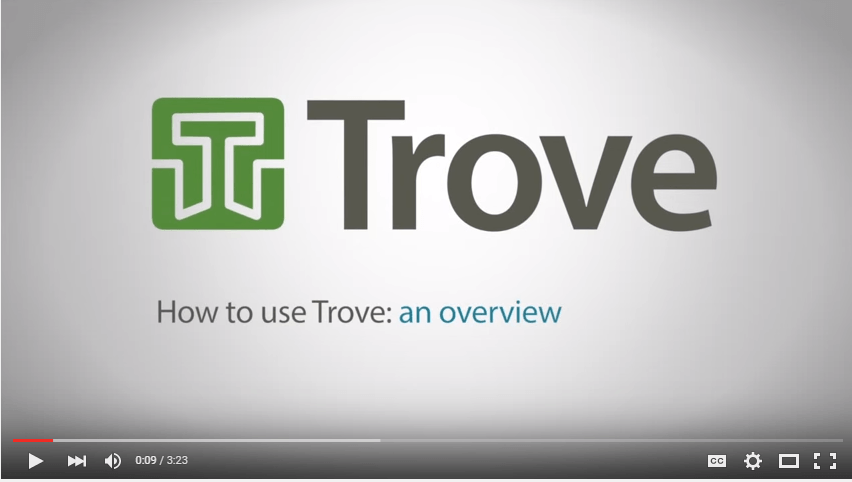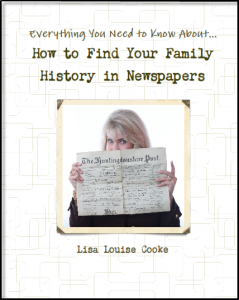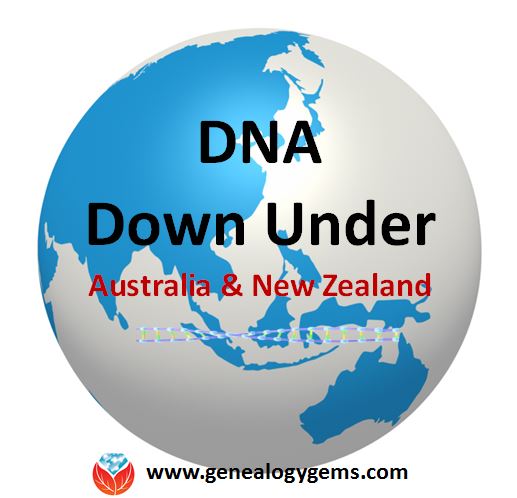Use A Family History Center to Access the Family History Library
Those who just attended RootsTech 2014 probably wish they’d had more time for researching at the Family History Library. Others may have watched streaming sessions of RootsTech at satellite Family History libraries, called Family History Centers or FamilySearch Centers. Whatever the case, I’m guessing many of us wish we knew more about how to use the Family History Center (FHC) nearest us.
FHCs are great: they’re free, there’s usually one not too far from you, they are your personal portal to microfilmed content at the Family History Library, and you don’t have to be a member of the sponsoring LDS church. And as it happens, I’ve just republished a three-part series on FHCs from my original Family History: Genealogy Made Easy podcast. All three episodes feature longtime genealogy researcher Margery Bell, Assistant Director of the Oakland Family History Center in Oakland, California. Here’s a breakdown of topics covered in each episode. Click on each to see the episode webpage, where you can access the podcast and the show notes.
Episode 17: Introduction to Family History Centers, their local holdings and how to order and use microfilmed resources from the Family History Library.
Episode 18: How to prepare for a visit to a local Family History Center, subscription websites you can use for free while visiting, and making copies in all forms.
Episode 19: Educational opportunities available through Family History Centers and Margery’s 7 top tips for getting the most out of your visit. Bonus: Margery shares inspiring stories of genealogy serendipity that happens when researchers come together in person.
Look for Genealogy Records in a State Capital
 Recently we heard from Jennifer, who wondered what kinds of genealogy resources she might discover in a state capital.
Recently we heard from Jennifer, who wondered what kinds of genealogy resources she might discover in a state capital.
“I’m tagging along on my husband’s thesis research trip to Columbus, Ohio. I have some ancestors from other parts of Ohio. I was wondering what exactly I could look for in a state’s capital collections/archives that could save me a trip to the city or county? I was thinking that the state capital may have a “gem” that I couldn’t find elsewhere, or even duplicated information [from local repositories]. Do you know?”
Yes, Jennifer is definitely thinking along the right lines! Here’s our advice:
At the state level there are often two key resources: the state library and the state archives. These might be combined. One might be called the state historical society. You just have to look for each state. In Ohio, the Ohio History Connection serves as the state historical society and official state archives. But there is also a state library that serves as a repository for government documents and a resource for other libraries. Each has resources for genealogists, online and in-house. (Click here for digital genealogy content at the state library and here for resources at the Archives/Library of the Ohio History Connection).
In addition, public libraries of major cities often have excellent local history and genealogy collections. This is definitely true of the Columbus Metropolitan Library in Ohio’s state capital!
We suggest you contact librarians before you go and ask what they have that can’t be found anywhere else, both on a state level and for locales you are researching. Often times that will include photograph collections, company (business) collections, and my favorite newspapers on microfilm. If you can formulate specific genealogical questions that you want to try and answer and share those ahead of time with the librarian that will help her guide you toward the unique gems. Every state library and archive is unique, so consulting by phone with the reference librarian is the best way to go.
 Here are a few articles on my website that can help you prepare to find genealogy records in a state capital repository or in any major library:
Here are a few articles on my website that can help you prepare to find genealogy records in a state capital repository or in any major library:
Trove: Australia Digitized Newspapers and More
This free video (below) introduces Trove, The National Library of Australia’s online catalog and digital archive for all things Australian. 
If you have roots in Australia, I hope you are using Trove. When I first covered it in the Genealogy Gems podcast a while back, it was a fairly new resource and I shared how it is chock full of 76 million digitized newspaper articles. Now that number exceeds 200 million records! The site has expanded its other content, too. If you haven’t looked for your Aussie roots on Trove recently, you’re really missing out!
Trove helps you find and use resources relating to Australia. It’s more than a search engine. Trove brings together content from libraries, museums, archives and other research organisations and gives you tools to explore and build.
Trove is many things: a community, a set of services, an aggregation of metadata, and a growing repository of fulltext digital resources.
Best of all, Trove is yours, created and maintained by the National Library of Australia.
 That’s how the site introduces itself, and it sure lives up to its claim. As shown in the video below, Trove lets you search among “zones” of online content:
That’s how the site introduces itself, and it sure lives up to its claim. As shown in the video below, Trove lets you search among “zones” of online content:
- digitized newspapers; journals, articles and data sets;
- online and offline books, audiobooks, theses and pamphlets;
- pictures, photos and objects;
- music, sound and video files;
- maps, atlases, charts and globes;
- diaries, letters and personal papers;
- archived websites;
- people and organizations; and
- a zone for user-created lists.
You can browse these zones individually or search them all with a single click. You can search for just items available online, in Australian-only content, or just in libraries you specify. Creating a free user ID allows you to personalize your experience and participate in online forums. From my U.S. perspective, it would be like having the Library of Congress main website and all its offshoots such as Chronicling America rolled up together with WorldCat, ArchiveGrid, Internet Archive and its Wayback Machine–but focused entirely on my country.
When it comes to those nearly-200 million newspaper articles, you can search these by keyword or browse by newspaper title, state, date, category (article, ad or list) or tag. Refine search results by place, title,  category, whether illustrated, decade and even the length of the article. You can even sign up to receive alerts to newly-posted material that matches your search criteria.
category, whether illustrated, decade and even the length of the article. You can even sign up to receive alerts to newly-posted material that matches your search criteria.
Remember, newspaper research in genealogy isn’t just about obituaries or wedding anniversary announcements. It’s about understanding the daily lives of our ancestors, and I share more strategies on uncovering these gems in my book How to Find Your Family History in Newspapers (available as an e-book or in print).
Here’s a video from the National Library of Australia with an overview of Trove:
Click here to search newspapers on Trove now.
MORE Australia Genealogy Gems
New Australia Genealogy Records Online
AncestryDNA in Australia and New Zealand
Assisted Immigration: Queensland Passenger Lists
